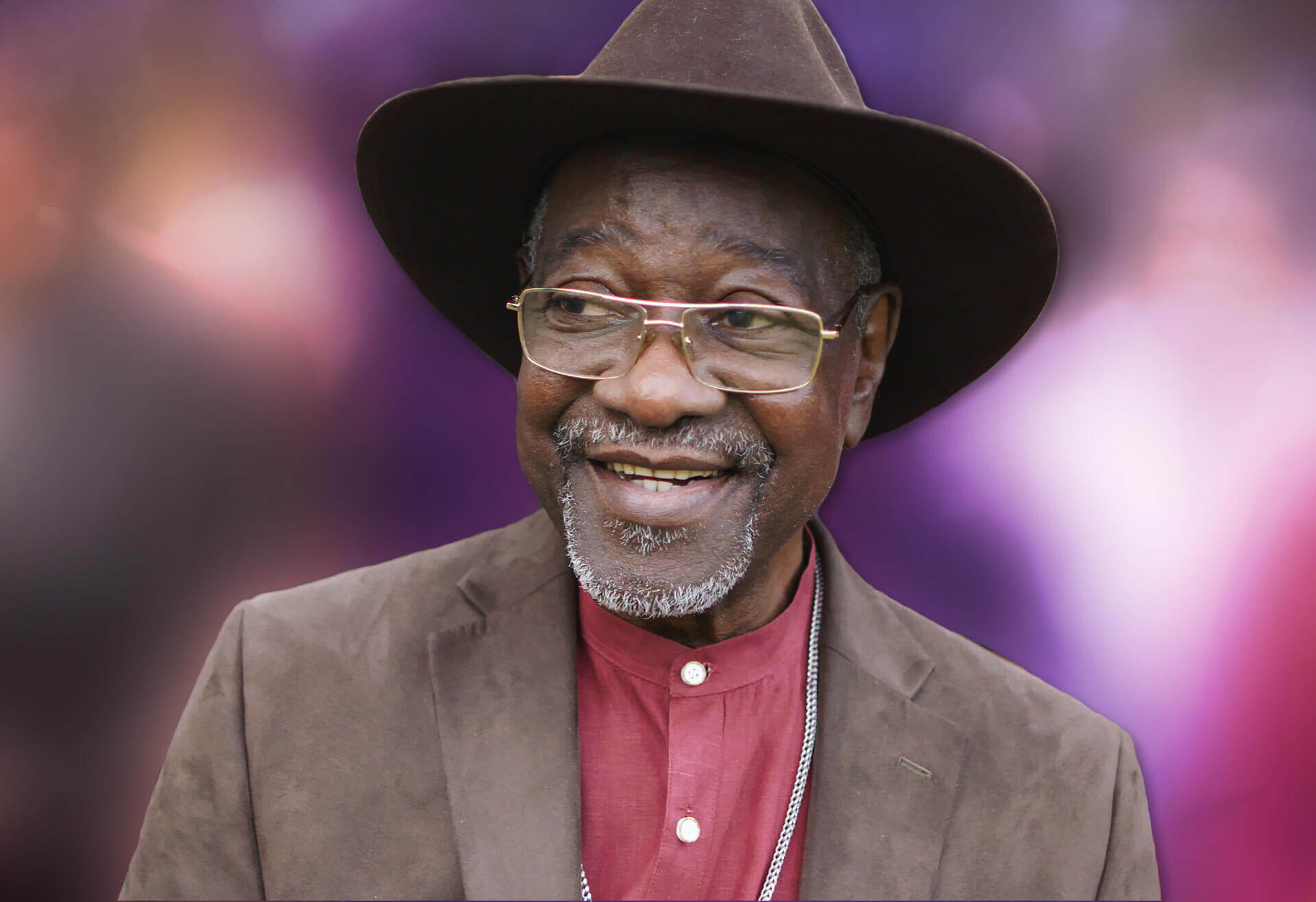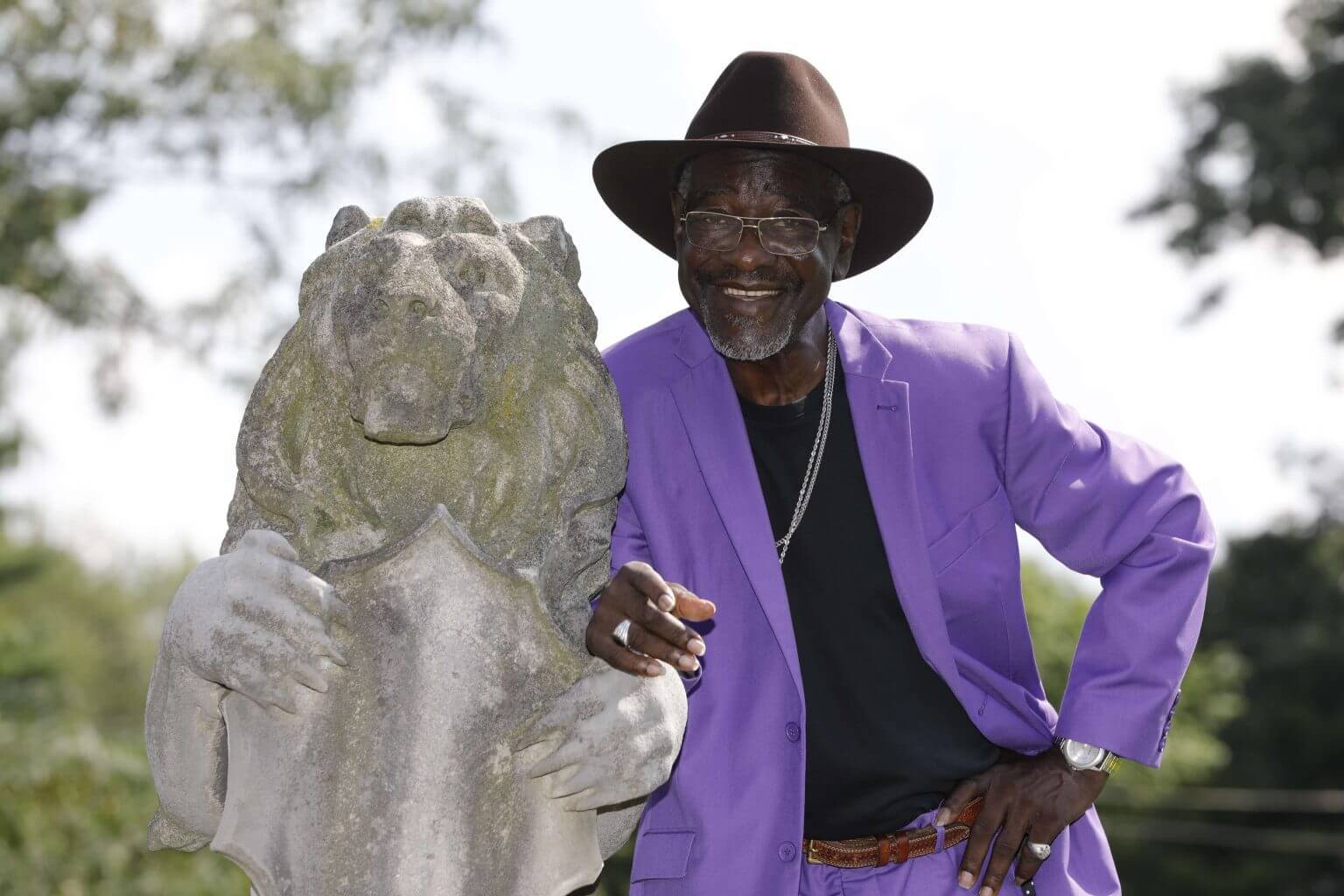The “Southern Gentleman of the Blues,” and a dyed in the wool soul man, Frank Bey has died.

The announcement came from Bey’s producer/friend Christoffer “Kid” Andersen:
I got some very bad news this morning. The wonderful Frank Bey passed away peacefully last night. He was an absolutely beautiful soul and I am so sad I will never see him or hear him sing again. I made this tribute video for him that we played during our live stream last night, and I can’t think of a better way to honor him than to let you all hear the magic and sincerity that he would impart on a song. This one was written by Bill Troiani, but when I heard it, I immediately thought of Frank. “One of these days, you’re gonna miss me. you’ll turn around, and I’ll be gone” I’m sad to say that that day is here. And there is no doubt that a lot of people will miss Frank Bey. He was the genuine article, and I feel so blessed that we could make some music together before his time was up.
The heartfelt video Andersen describes can be viewed here.
Born Frank Bass on January 17th, 1946 in Millen, Georgia, Bey was a consummate soul man and gentleman. His way up through the musical ranks was filled with both highlights and hard times. I had the great pleasure to interview Mr. Bey in 2018, spending an hour on the phone with him as he regaled me with memories, and thoughts on new music.
I started singing Gospel at four years old, well, really before that. I did that until I was in my early teens. Then I started to sneak out and sing rhythm and blues with a guy named Robert Sharp. He had a group called The Untouchables. I still had my Gospel group, but my two cousins moved down to Florida. That busted the group up. I put in a couple girl cousins and we kept going for about another year, but then I left Georgia at 17.
Leaving home at 17, he ended up in Philadelphia where he got a job as a driver for Otis Redding’s advance publicity man Gene Lawson.
A fellow from Waynesboro, Georgia, which is about 20 miles from my home, was in Philadelphia at that time. He was Otis Redding’s publicity person and he got me the job driving for Otis. That’s when I really started sharpening my skills. In fact, Otis was supposed to record me. They never did though. They kept me driving and opening shows. Now the recorded Arthur Conley, and another guy named Nicky Murray. Now in my head I thought I was a better singer than both of those guys. By them skipping over me, I got disenchanted so I left that operation and went back to Philadelphia.
Perhaps the saddest part of that tale is that Redding’s career was truly launched while he was working as a driver for guitarist Johnny Jenkins. It wouldn’t be the last time others mistreated Bey. While Frank was a member of The Moorish Vanguard, James Brown “acquired” producing credit on a song of theirs, “Sitting in the Sunset of Your Love.” The band mistakenly thought that Bey and Brown had conspired against them, left Bey in Florida mid-tour, taking the motor home and equipment that Bey himself had financed. It broke Frank’s heart and he didn’t sing again for 17 years.
Although he made a major comeback, Bey’s health wasn’t good. He suffered kidney failure twice, the first time receiving a transplant organ that lasted for 15 years. When it failed Bey returned to dialysis three times a week.

In 1998, Bey released his debut solo album, Steppin’ Out, and subsequently Blues in the Pocket nine years later. He went on to record three albums with Bay Area guitarist Anthony Paule. Their 2014 release Soul for Your Blues garnered Bey two Blues Music Award nominations. A couple years later he was nominated twice more for Not Goin’ Away. The 2019 BMAs saw Bey nominated for Soul Blues Male Artist of the Year and Soul Blues Album of the Year; this time for the album Back in Business, his first release on the Nola Blue label. His most recent offering was All My Dues Are Paid released via Nola Blue in January.
Frank Bey entered hospice care at his home in Pennsylvania on June 4th, and passed away June 7th, leaving an indelible mark in the soul blues lexicon. A true gentleman, who rose above odds that would make most artists seek another career, Bey’s music lives on in our hearts and in our ears.
Frank Bey
*Feature image courtesy of Blind Raccoon


